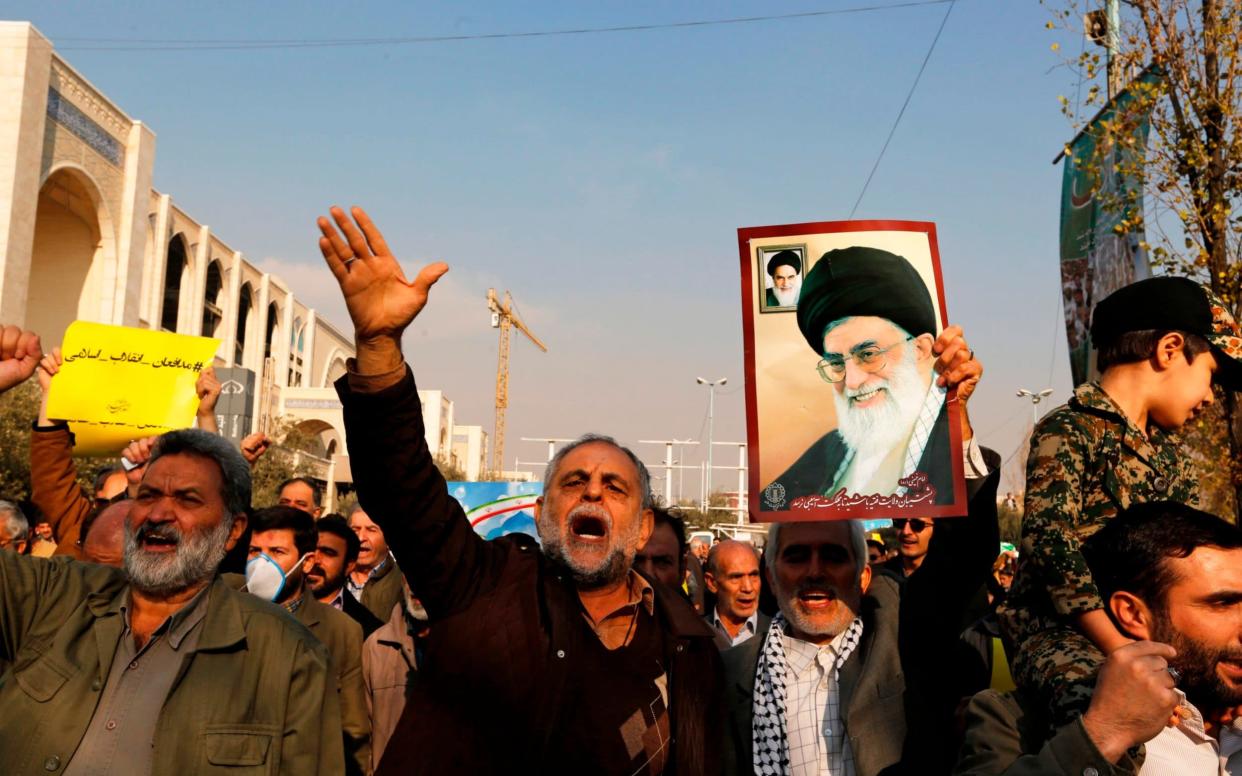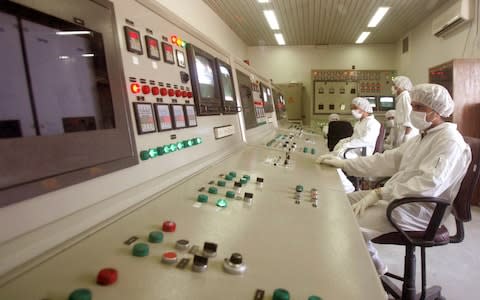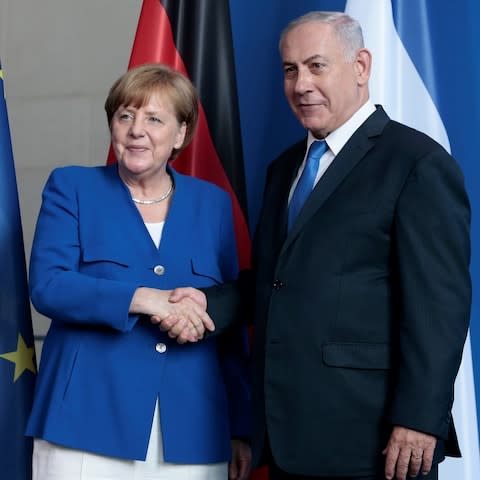Iran tells UN of plan to enrich uranium in response to US withdrawal from nuclear deal

A war of words between Israel and Iran escalated on Tuesday after Tehran informed the UN’s nuclear watchdog it was beginning the process of increasing its capacity to enrich uranium.
Yisrael Katz, Israel's intelligence minister, called for a military coalition against Iran if the Islamic Republic was to defy the world powers who signed a nuclear deal with Iran.
"If the Iranians don't surrender now, and try to return" to unsupervised uranium enrichment, "there should be a clear statement by the President of the United States and all of the Western coalition," he said.
The message should be that "if the Iranians return" to enriching uranium that could enable them to build a nuclear bomb, "a military coalition will be formed against them," Mr Katz told Israeli public radio.

Supreme Leader Ayatollah Ali Khamenei, Iran's ultimate authority, said on Monday he had ordered preparations to increase uranium enrichment capacity if a 2015 nuclear deal falls apart after the US withdrawal from it last month.
Under the agreement with the US, France, Germany, Britain, Russia and China, Iran strictly limited uranium enrichment capacity to satisfy the powers that it could not be used to develop atomic bombs.
In return the Islamic Republic saw a partial lifting of US and international sanctions.
Tehran is permitted to increase its enrichment efficiency by the end of the next decade just before the deal is set to expire. But speeding up preparations now could allow Iran to ramp up production more quickly after that date.
Ali Akbar Salehi, the head of Iran’s atomic energy organisation, said work had begun on the infrastructure for building advanced centrifuges at Natanz facility.
Mr Salehi said they would remain within the framework of the 2015 accord but that it marked an increase in the pace of the nuclear programme.
Diplomats told the Telegraph they viewed it as a “warning shot” to Europe.
“Following a first assessment, the announced steps per se are not a violation of the JCPOA (the acronym for the accord),” said a spokesman for Federica Mogherini, European Union policy chief. “However, at this particularly critical juncture, they will not contribute to build confidence in the nature of the Iranian nuclear programme.”

Iranian authorities have said that if the European countries failed to keep the pact alive, Tehran had several options, including resuming its 20 percent uranium enrichment.
Benjamin Netanyahu, Israel's prime minister, yesterday began a three-tour of Europe with the aim of convincing the signoratories to back out of the accord and support his push for tighter measures on Tehran.
During a meeting with Angela Merkel, Germany's chancellor, in Berlin she said that while she had concerns about the 2015 deal it remained the best option available to prevent an arms race in the region.
Mr Netanyahu is to meet Emmanuel Macron, France's president, in Paris, later today and Theresa May tomorrow.

